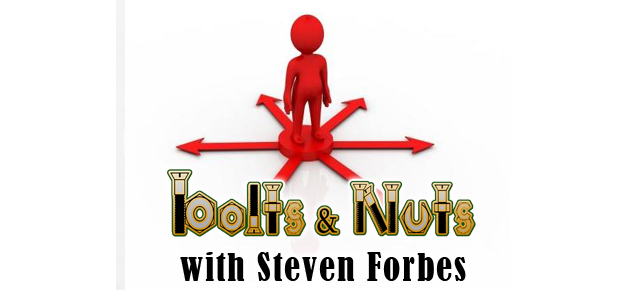B&N Week 194: Are You Defining Your Own Role In Comics?
Welcome to another Tuesday! We’ve had lots of rain here in southern Arizona—more than usual. Lots of flooding in my area. Not me, though. I’m fine, thanks. But places around me? Difficult to access or egress, because of the flooding. People were even sent home early because of it. So, yeah, lots of rain lately.
This week’s question, though, isn’t about the rain. (You don’t say!) [I do!] This week’s question is: are you defining your own role in comics?
Time for a history lesson. A personal history lesson.
When I first started in comics, all I wanted to do was write. Writing was what I did. I wanted to be a professional storyteller, work for Marvel, and create scores of characters that were going to be beloved by all. That was my goal. Then my goal changed a bit, because Marvel’s doors were closed—I created my own characters, and then wanted them to rival the best of what Marvel had.
Image comics was huge! Seven artists who decided to create their own company after working for The Man, and they were now going to take their own creations and tell their own stories.
Their decision spawned a metric shit-ton of copycats. (That’s the scientifical term, ain’t it?) [Yep!] Everyone wanted to either create for Image, or create their own version of Image. You didn’t have far to look to see creators jumping in without a clue. [Full disclosure: I was one of them.] I knocked around from place to place, seeing what was there, and shaking my head in disgust, more often than not. The reason was simple.
There were a lot of bad stories trying to be told.
I may not have had a clue, but I knew a few things. I had been writing short prose stories for years, and had even started writing a novel or two. I didn’t formally understand story structure [it never entered my mind to pick up a book], but I innately knew how a story worked. Not just how a story worked, but also how to tell a story generally effectively. And I was on what I considered near the bottom rung of my storytelling abilities. I knew I had a lot to learn. I understood that I couldn’t take my childish creations and truly try to bring them to life. Not as they were. Not without a lot of sprucing up. [Come on! I had a character named The Puma, who was a shapeshifter. Why? Because my father had a Puma sneaker bag that I liked, and I named the character after that, and gave him some random powers. Imagine my surprise when Marvel debuted the Puma as a foe of Spider-Man!]
As I looked around these places, mostly in disgust, I also looked at myself, and did my best to up my own game. I saw what people were trying to create, and I told myself that I would do better, because what they were creating was crap, more often than not. So I started to learn more about the craft of creating comics.
I got my hands on everything that I could, and read and learned and wrote and honed. And I kept at it. As I learned and honed, I did what I could to help other writers, pointing out what they were doing wrong and giving suggestions on how to do it right. And the more I helped, the more I learned. And the more I helped, the more I learned that I liked helping. I liked helping creators solve their problems. I liked helping creators steer away from what I thought was a bad story toward a better, more appealing story. And not just appealing to me, but appealing to future readers.
And that’s how I slowly slid into editing.
It has taken years, but I managed to make something of a name for myself as an editor. I started out wanting to write, and have ended up being an editor. I have put in the work, and have carved out a very small role for myself in the comics landscape. I have defined myself: I give the straight dope as an editor, not beating around the bushes. The fire and anger of youth has given way to a more subdued Steven. (HA!) I have learned to keep most of my mind-rending comments to myself and just concentrate on the work before me.
And if I can do it, so can you. I’m not smart, and it takes me longer to learn some things than others. If I can make something of a name for myself, defining a role for myself in comics, then so can you.
How did I define my small role? You’re reading part of it now.
I became visible. For a quiet guy, I’ve got a big mouth, and I have a lot to say. I’ve also learned how not to sound rabid and crazy when discussing a point. Blunt, yes, crazy, no. While some may fault the messenger, they can’t often fault the message. Said more plainly, I often know what I’m talking about. That has helped me not only to get work, but to keep getting work.
Know who else is defining their roles? Look at the list of creators in any ComixTribe book. These creators are putting in the work, defining their roles, and they have good things to show for it.
Are you defining your own role in comics?
See you in seven.
Click here to discuss in the ComixTribe forum at Digital Webbing!
Related Posts:
Category: Bolts & Nuts, Columns

















